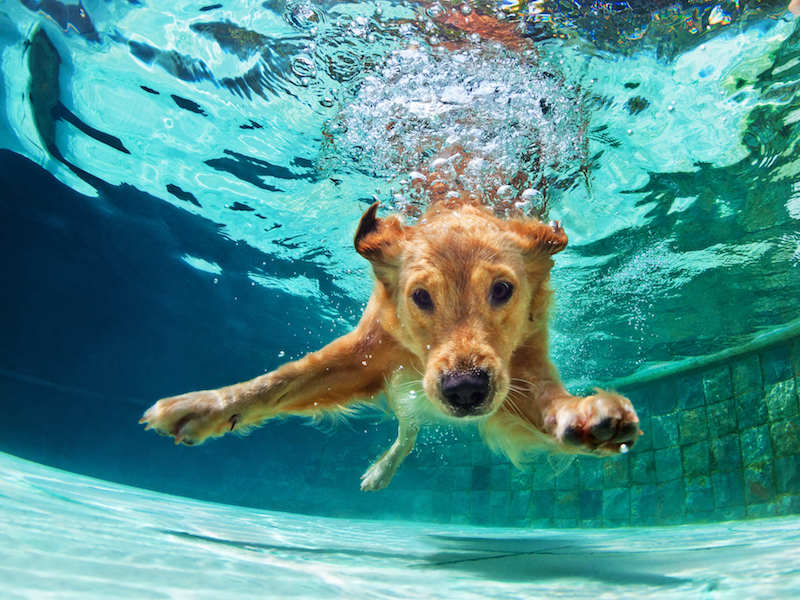
There are many factors which can affect the electrical circuitry of your hearing aids. In fact, you could call moisture kryptonite for hearing aids. Even if you already know that and take care to protect your investment from the shower, pool, or a good face washing, chances are you are missing the most common cause of water damage in hearing aids: humidity.
Invisible moisture has the highest chance of causing irreparable damage. It’s time to learn more about why humidity is a damaging thing for hearing aids.
Understanding Humidity
Humidity is a word that gets bounced around a lot, commonly during the summer months, but what does it mean? PBS describes humidity as water molecules in the air. The relative humidity refers to the ratio of water molecules in the air compared to how many the air can actually hold. When you can feel wetness in the air, that means the relative humidity is high.
Human beings are very sensitive to humidity because sweat is the most efficient way to cool down the body. When humidity levels are high our sweat won’t evaporate as fast. Electronics are also susceptible to humidity and that is why it has such a detrimental effect on hearing aids.
Understand Humidities Effect on Hearing Aids
Oddly enough, electronics are not only sensitive to high humidity but low levels as well. When it’s too moist, the delicate electronics will accumulate condensation. When it’s overly dry things become more brittle.
Internal electronics are the reason your hearing aids work. Modern digital hearing aids use a state-of-the-art signal processing chip to manage noise. It’s what is behind elegant functions like:
- Noise reduction
- Anti-feedback
- Targeted listening programs
- Digital sound streaming
High humidity causes moisture to collect in the hearing aids destroying that chip. It can corrode elements inside the casing and destroy batteries as well. It’s the equivalent of dropping your hearing aid in a tub of water.
Controlling Humidity
If you are looking at hearing aids, try to find products that are water-resistant. Having this feature doesn’t mean you can go swimming with your hearing aids in your ear, but it does offer some protection from humidity and other weather-related concerns like getting caught in an unforeseen rainstorm or even sweat when you exercise.
When it’s very humid try to lessen indoor water vapor by utilizing a dehumidifier. It’s an investment that will help you and your family in numerous ways and protect other electronic devices like that costly TV you got for Christmas. Dehumidifiers reduce the risk of mold, mildew and dust mites, so everyone breathes a little better, too. However, protecting your hearing aid more completely will require additional thinking. There are a few other things you can and should do.
Look for the dehumidifier made for hearing aids. There is one out there for every budget. Drying kits rely on silica gel crystals to protect the electronics. Moisture is eliminated by putting the hearing aids into the dehumidifier for a couple of hours. There are also storage containers that dry hearing aids out each night as you sleep. If it is very humid and you have no other way, uncooked rice can reduce moisture.
Get in the habit of opening the battery compartment every time you store your hearing aids. By pulling that door open before you put the hearing aid down, you expose the batteries and other elements to the air, allowing any condensation built up to evaporate naturally. Do this all year round, not just in the summer months.
A cool dry place is the ideal for storage. On the table in the sun, in the glove compartment, or in a hot room are examples of where not to store your hearing aids.
Other Moisture Concerns
Air vapor is not the only moisture that can damage hearing aids. Don’t forget to think about other types of wetness like:
- Don’t touch your hearing aids with hands that are still moist from lotion.
- Find a safe place to store your hearing aids if headed for the pool or beach.
- When exercising wear a sweatband. It’s a good practice whether you wear your hearing aids when you workout or not. Later that sweat will cause problems.
- Try not to put your hearing aid down on wet surfaces. A glass or coffee cup can leave moisture behind.
Your hearing aids are a valuable asset, so treat them that way. Consider how moisture and humidity can impact them and take steps to prevent water damage. If your hearing aid already has water damage make an appointment for service with a hearing aid specialist.
